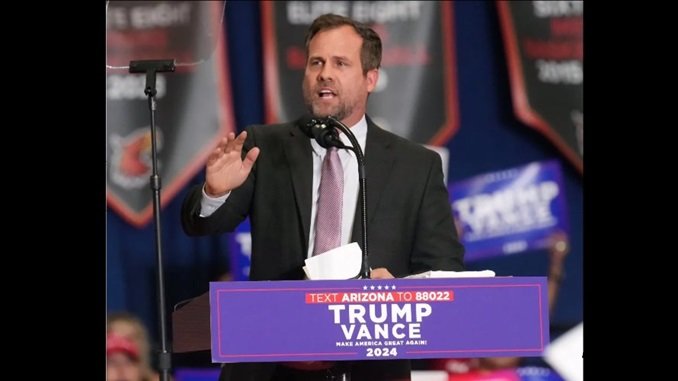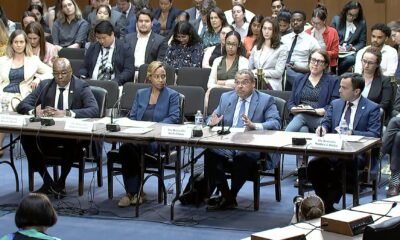Arizona Immigration Cooperation and Enforcement Act
Sen. Petersen Unveils Bold Bill to Bolster Trump Administration’s Border Security Initiative

By Daniel Stefanski |
In a strategic move following the inauguration of President Donald J. Trump, Arizona Senate President Warren Petersen has introduced the Arizona Immigration Cooperation and Enforcement Act (AZ ICE Act) to bolster federal border security efforts.
The legislation mandates county sheriffs’ departments and the Arizona Department of Corrections to establish 287(g) agreements with the federal government by January 1, 2026. These agreements enable local law enforcement to assist in identifying and processing noncitizens in custody for local law violations. Furthermore, the bill enforces compliance with immigration detainer requests, aiming to reduce the release of criminal illegal aliens into communities. Funding provisions are included to ensure that law enforcement has adequate resources for implementation.
“Ending the border crisis requires an all-hands-on-deck approach,” Petersen stated in a press release. He emphasized that the AZ ICE Act facilitates collaboration between federal and local law enforcement, enhancing community safety. Petersen noted the clear directive from Arizona voters, who overwhelmingly approved the ‘Secure the Border Act’ in the previous November election, signaling a demand for robust law enforcement and community safety.
The 287(g) program, enacted by Congress in 1996, allows local agencies to enter agreements with the federal government to execute specific immigration duties after receiving federal training.
Petersen’s initiative reflects ongoing efforts to tackle what he describes as lawlessness at the border, particularly during the previous administration. His support for the Secure the Border Act last year illustrated a commitment to empowering local law enforcement with necessary resources to combat the impacts of illegal immigration, notably the trafficking of fentanyl by cartels.
While Petersen’s initiatives align with federal aspirations under Trump’s administration, challenges are anticipated from Arizona Governor Katie Hobbs, a Democrat. Historically, Hobbs has resisted many Republican-led border security measures. However, as the political landscape evolves approaching her re-election, she may seek to navigate bipartisan collaborations on key border security issues.


















